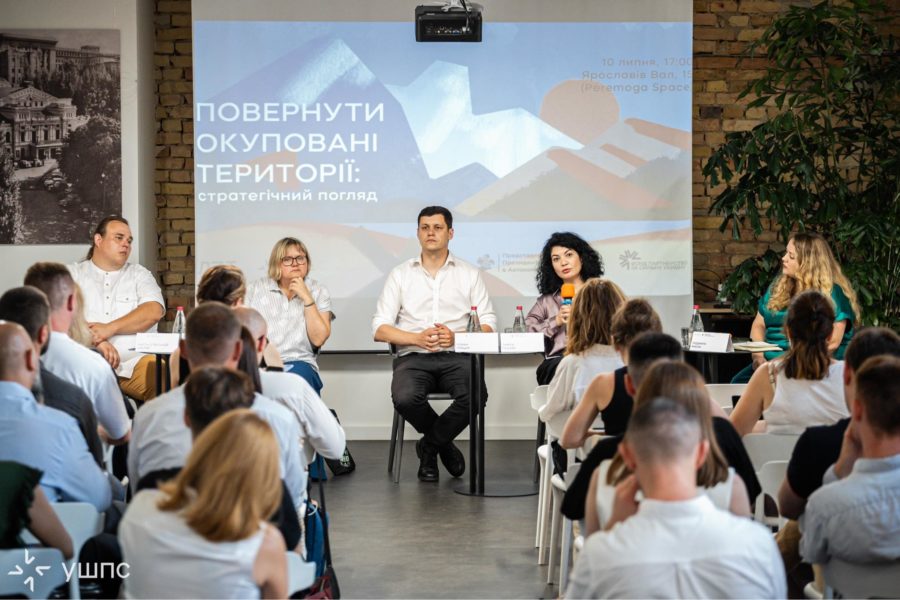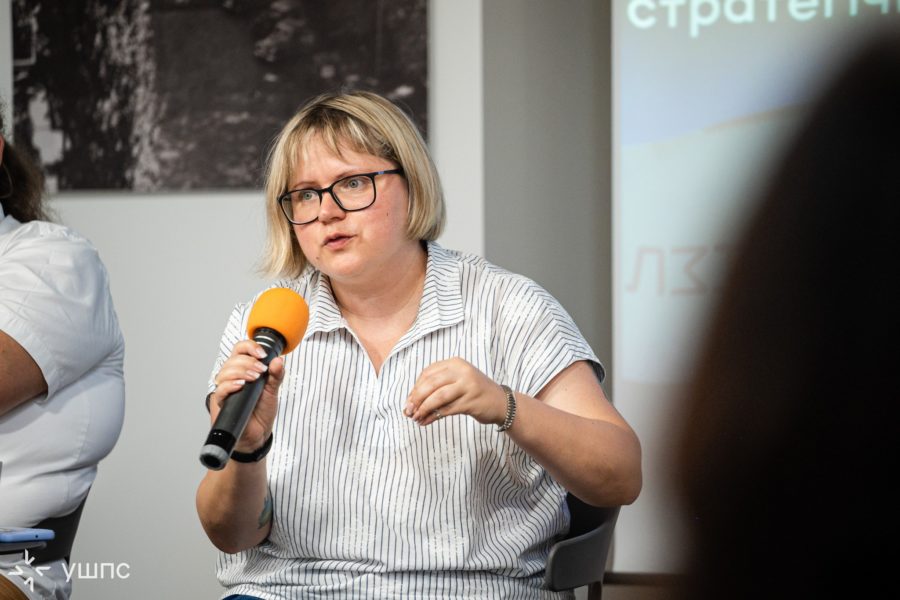USPS launches a series of discussions on de-occupation of territories
The Ukrainian School of Political Studies, in cooperation with the Mission of the President of Ukraine in the Autonomous Republic of Crimea and Human Rights Centre ZNINA, held a club on “Returning the Occupied Territories: A Strategic View”. According to the organisers, this is the first event in a series of discussions on de-occupation.

According to Tamila Tasheva, the Permanent Representative of the President of Ukraine in the Autonomous Republic of Crimea, Ukraine began developing a de-occupation strategy in 2021, but its focus changed after the start of the full-scale war:
“If earlier the main way to liberate the occupied territories was political and diplomatic, now we understand that de-occupation will also take place physically. It is necessary to ensure transparency of communication, in particular in punishment measures. It is important for us to convey to people that only those who actively cooperated with the occupying authorities will be brought to criminal liability”.
In addition, during de-occupation, it is important to ensure respect for human rights and transparent communication with society.
“Reintegration is not about pleasant decisions. Therefore, we need tools that should provide the country with mechanisms for the transition to sustainable peace. This also applies to the issue of responsibility, support and compensation for victims, the right to truth and understanding of what happened”, the advocacy manager of Human Rights Centre ZMINA, Alena Lunova said
 Alena Lunova
Alena LunovaRoman Hryshchuk, a people’s deputy of Ukraine, member of the Verkhovna Rada Committee on Education, Science and Innovation, stressed the importance of developing a strategy and researching the content of education, in particular in the context of possible cooperation between educators and the enemy.
According to Martin-Oleksandr Kyslyi, a researcher of the history of the Crimean Tatars and a candidate of historical sciences, Ukraine needs a clear strategy and roadmap for the effective de-occupation of Crimea, as well as a deep understanding of the region, as it has changed a lot over the past 10 years.
The discussion was moderated by Liudmyla Yankina, the head of the protection of civil society department of Human Rights Centre ZMINA.
If you have found a spelling error, please, notify us by selecting that text and pressing Ctrl+Enter.















